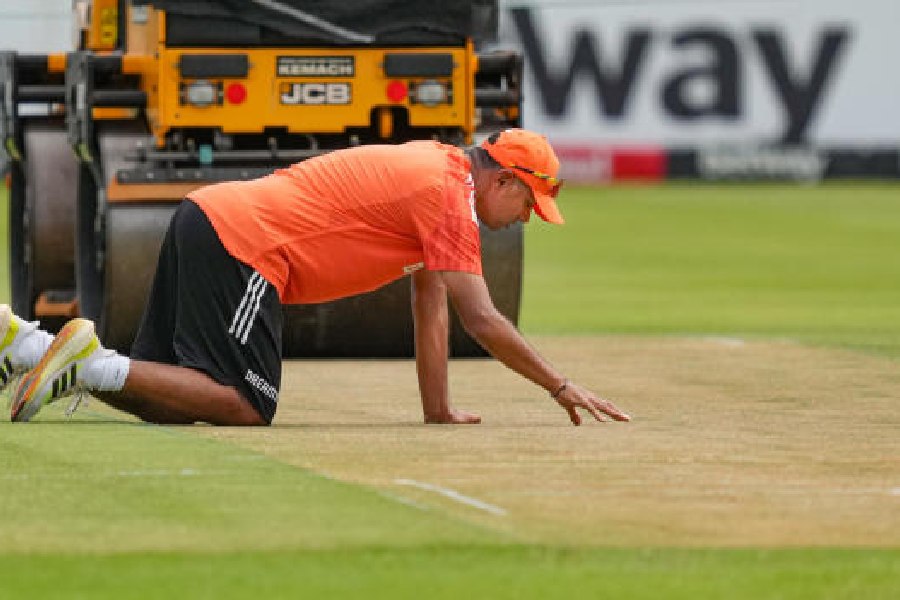The wicket for the second Test between India and South Africa at Newlands in Cape Town has escaped a strong sanction with the International Cricket Council (ICC) handing an “unsatisfactory” rating and one demerit point.
The match, which India won by seven wickets, ended in less than five sessions and lasted just 642 balls, the shortest Test which had a result in the game’s history.
The fast bowlers dominated the game which produced lateral movement and uneven bounce. A total of 23 wickets fell on the opening day, with South Africa getting bowled out for 55 and India making 153, losing their last six wickets for 0 runs.
In the ICC pitch and outfield monitoring process, if a pitch or outfield is rated as being substandard, that venue will receive a number of demerit points. One demerit point will be awarded to venues whose pitches and outfields are rated by the match referee as unsatisfactory, while three demerit points will be awarded to venues whose pitches and outfields are marked as unfit.
The demerit points will remain active for a rolling five-year period.
When a venue accumulates six demerit points, it will be suspended from hosting any international cricket for 12 months, while a venue will be suspended from staging any international cricket for 24 months when it reaches the threshold of 12 demerit points.
The ICC announces the verdict after its operations team in Dubai processes the match referee’s ratings.
Match referee Chris Broad handed out the “unsatisfactory” rating after consulting with captains Dean Elgar
and Rohit Sharma, both of whom, according to an ICC
release, felt the pitch “was below standard”.
“The pitch in Newlands was very difficult to bat on,” Broad said. “The ball bounced quickly and sometimes alarmingly throughout the match, making it difficult to play shots. Several batters were hit on the gloves and many wickets also fell due to the awkward bounce.”
Former India captain Sunil Gavaskar had been critical of the pitch in his column for The Telegraph on Sunday. “I have always maintained that a pitch where a batter is physically threatened is far more dangerous than a pitch where only the batters' reputation is under threat,” he wrote.
“It will be most interesting to see what the Newlands pitch is rated... Yes, there were two hundreds scored on that surface but the way the ball regularly shot up from a good length was alarming indeed.”
He brought the Centurion wicket too under the ‘dangerous’ category, asserting that it was not an accidental error but a well-planned design by the hosts.
Rohit too had been livid in his assessment of the pitch. “We all saw what happened in this Test and how the pitch played. I honestly don’t mind playing on pitches like these as long as everyone keeps their mouth shut in India and don’t talk about Indian pitches,” said Rohit.
The India captain also slammed the ICC and the match referees for their ‘double standard’. “That’s my judgement, my opinion and I’ll stick by it. I’ve seen enough cricket and enough of how these match referees and ICC look into these ratings. I don’t have an issue on how you rate, but stay neutral.”
Tests on Indian pitches have always incurred the ICC’s wrath once the ball starts turning from the opening day. The Indian team management has always sought a parity in judging the pitches which turn and the ones which seam and produce uneven bounce.
Cricket South Africa has 14 days to appeal against the sanction but are unlikely to appeal to the ICC.











